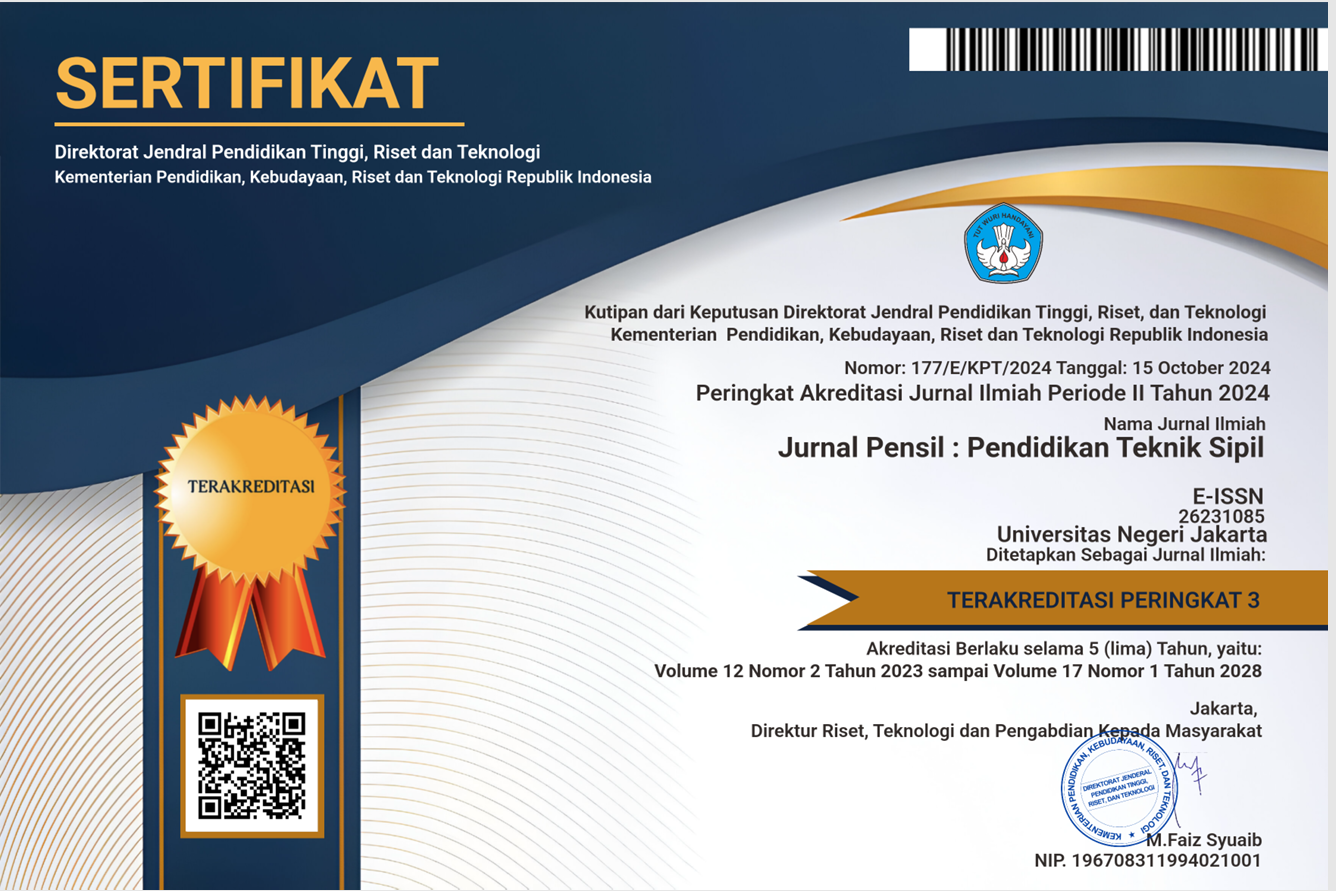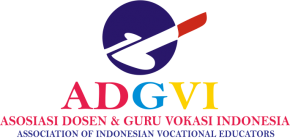Perbedaan Metode Pembelajaran Aktif Tipe Quiz Team Dengan Metode Konvensional Plus Terhadap Hasil Belajar Ilmu Konstruksi Bangunan
Studi Eksperimen Pada Siswa Kelas X TGB SMKN 1 Jakarta
DOI:
https://doi.org/10.21009/jpensil.v2i2.9871Keywords:
learning methods, difference, building constructionAbstract
This study aims to determine significant differences in learning outcomes, in which the learning outcomes of students who are given the type of active learning quiz team is higher than conventional methods plus the subjects of class X Science Building Construction Architecture
SMKN 1 Jakarta.
Research site at SMKN 1 Jakarta. Research time in May-June 2013. The research method used was experimental method. The population in this study are all Class X Architecture Engineering Expertise Program SMKN 1 Jakarta 2012-2013 school year, amounting to 56 students, consisting of 26 students X TGB – 1 Class (Control Class) and 30 X TGB – 2 Class (Experiment Class) . Type in the research sample is saturated sampling where the number of samples used the same amount of population that is 56 students. Data collection techniques used were tests, totaling 30 items in the form of multiple choice. Testing the validity of the results obtained about 23 items were declared invalid. Reliability of the results obtained at 0.858 with very high levels of reliability.
The average value of the experimental class is 81.87 higher than the average value of the control class is 75.54. The data comes from a normally distributed population and homogeneous. Hypothesis testing research conducted by t test with a significance level of 5% value obtained tobtained = 2.614, ttable = 1.675 then tobtained > ttable or 2.614 > 1.675, so reject H0 or hypothesis of the study accepted. The results are there differences in learning outcomes significantly Science Building where students are given learning outcomes of active learning quiz team type is higher than conventional methods plus. Based on the research results prove that the type of active learning quiz team can make students actively, increase motivation and attitude in the student's responsibility to learn and improve learning outcomes of students in the Science Building Construction SMK 1 Jakarta.
References
2010 Tentang Penyelenggaraan Pendidikan serta Wajib Belajar. Bandung : Citra Umbara
Bafadal, Ibrahim. 2004. Peningkatan Kompetensi Guru. Jakarta : Pustaka Setia
Bonwell, Charles C., dan James A. Elison, 2001. Active Learning : Creating Excitement in the Classroom. http://www.gwu.edu/eriche.html [Diakses tanggal 23 Maret 2013 WIB pada pukul 19.00 WIB]
Dimyati dan Mudjiono. 2006. Belajar dan Pembelajaran. Jakarta : Rineka Cipta
Hollingsworth, Pat dan Gina Lewis. 2008. Pembelajaran Aktif. Jakarta : PT Indeks
Setiawan, Aan. 2011. Perbandingan pembelajaran konvensional dan hypnotheaching.
http://www.aansetiawan2.com/2011/03/perbandingan-pembelajaran konvensional.html [Diakses tanggal 27 Maret 2013 pukul 19.00 WIB]
Silberman, Mel. 2007. Active Learning : 101 Strategi Pembelajaran Aktif. Yogyakarta : Pustaka Insan Madani
Silberman, Mel. 2010. 101 Cara Pelatihan dan Pembelajaran Aktif. Jakarta : Indeks
Slameto. 2010. Belajar dan Faktor-Faktor yang Mempengaruhi. Jakarta : Rineka Cipta
Sudjana, Nana. 2009. Penilaian Hasil Proses Belajar Mengajar. Bandung : PT Remaja Rosdakarya
Sugiyono. 2009. Metode Penelitian Pendidikan Kuantitatif dan Kualitatif dan R&D. Bandung : Alfabeta
Supribadi, I Ketut . 1987. Ilmu Bangunan Gedung. Bandung : Armico
Winkel, W.S. 2007. Psikologi Pengajaran. Jakarta : Gramedia












.png)
.png)
1.png)

